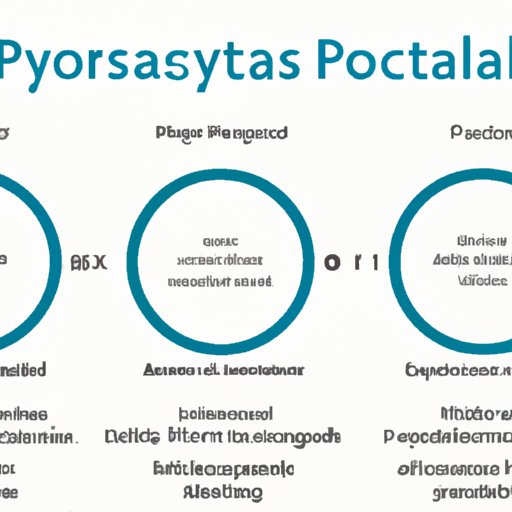
Introduction
Polycystic Ovarian Syndrome (PCOS) affects around 1 in 10 women of childbearing age. It is a complex hormonal disorder that can cause a host of physical and emotional symptoms, including infertility, acne, and depression. Despite being so common, PCOS is still widely misunderstood and remains a confusing topic for many people. In this article, we will discuss the myths, misconceptions, emotional and psychological challenges, and the latest research findings on PCOS. We will also look at practical strategies for managing the symptoms of PCOS and examine both sides of the debate on whether PCOS can be considered a disease.
What is PCOS, and Why is it Considered a Disease
PCOS is a hormonal disorder that affects the ovaries of women in their reproductive years. It is a complex condition that results in hormonal imbalances, and its causes are not yet fully understood by medical scientists. In terms of symptoms, PCOS can present in various ways, but typically patients experience irregular menstrual cycles, infertility, acne, weight gain, hair loss, and excessive hair growth. Diagnosis of PCOS is made based on symptoms, a physical examination, and lab tests such as blood tests or ultrasounds.
As PCOS can lead to significant health complications such as type 2 diabetes, heart disease, and endometrial cancer, and affects so many women, it is widely considered to be a disease.
Breaking Down the Myths and Misconceptions About PCOS
Despite how common PCOS is, it is widely misunderstood. There are numerous myths and misconceptions about this condition, which can lead to delayed diagnosis and poor treatment. One such myth is that PCOS is primarily a fertility issue. However, PCOS patients face a plethora of other symptoms too, such as acne, hair loss, and excessive hair growth
.
Another myth about PCOS is that it is caused by poor diet or lack of exercise. Although lifestyle factors can contribute to symptoms, PCOS is a hormonal disorder, and we have yet to discover all the underlying causes. These misconceptions can make it harder for women to seek medical help and to manage their symptoms.
The Emotional and Psychological Challenges of Living with PCOS
It is no secret that living with a chronic health condition like PCOS can take a toll on your emotional and mental wellbeing. This condition affects many different aspects of a person’s life, including their social, personal, and professional life. PCOS patients often face feelings of anxiety, depression, and social isolation. Additionally, the hormonal imbalances can lead to mood swings and irritability.
Living with PCOS can also be a journey of grief and loss, particularly for those who struggle with infertility. The thought of not being able to conceive can be incredibly difficult to come to terms with, not to mention the impact it has on a couple’s relationship. Recognizing the emotional and psychological impact of PCOS is crucial for managing this condition successfully and promoting overall wellbeing.
Coping with PCOS: 10 Strategies for Living Well
There are numerous approaches that individuals with PCOS can take to live a healthy and fulfilling life. Making certain lifestyle changes can help manage the symptoms of PCOS. For example, maintaining a healthy diet, which is low in sugar and refined carbohydrates, can help regulate insulin levels and manage weight gain.
Incorporating exercise into your daily routine can also boost energy and reduce mood swings. It is essential to prioritize mental health and emotional wellbeing when managing PCOS symptoms. Practicing self-care strategies, such as mindfulness or therapy, recognizing emotions and triggers, and building support systems, can make a significant difference in managing PCOS symptoms and improving overall wellbeing.
Is PCOS Really a Disease?
Although PCOS is widely considered a disease, there is still some debate as to whether it should be classified as such. On the one hand, it is a widespread hormonal disorder that can lead to significant health complications. On the other hand, there are no definitive diagnostic tests for PCOS, and the underlying causes are still being researched.
One argument against classifying PCOS as a disease is that every woman with PCOS experiences different symptoms. There is also some debate over whether PCOS is simply an umbrella term for various hormonal conditions, rather than a single defined disease.
Ultimately, regardless of how we categorize PCOS, the most important thing is to recognize the significant impacts that this condition has on people’s lives and the importance of getting help, support, and proper medical treatment.
The Science of PCOS: Exploring the Latest Research
Recent research in the field of PCOS has focused on developing new, more accurate diagnostic tests and better understanding the underlying causes of the hormonal imbalances. There has also been progress in identifying new treatments that could help to manage symptoms, such as anti-androgen drugs.
The future of PCOS research looks promising, with an increasing focus on identifying the various subtypes of PCOS and understanding how to personalize treatment for each patient.
Conclusion
In conclusion, PCOS is a complex hormonal disorder that is widely misunderstood, despite its prevalence. It can lead to significant health complications and impact various aspects of an individual’s life, including their emotional and mental wellbeing. While there is still debate around whether it should be classified as a disease, it is essential to recognize the significant impact that PCOS has on people’s lives and to encourage more research into new diagnostic methods and treatments.
If you are struggling with the symptoms of PCOS, there is help available. There are support groups, medical treatments, and lifestyle changes that you can make to manage your condition effectively. Remember, you are not alone, and there is always hope for living a healthy and fulfilling life.





